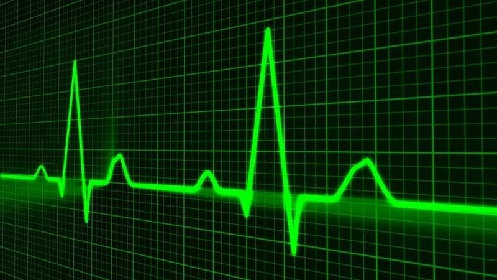
Women are 1.75 times more likely to report anxiety than men after cardiac arrest, say Danish researchers
Women are 1.75 times more likely to report anxiety after cardiac arrests when the heart stops pumping blood, researchers from Copenhagen University Hospital said while presenting their work during the ESC Acute Cardiovascular Care 2023, a scientific congress of the European Society of Cardiology.
The researchers said that according to their study findings, more than 40% of women report anxiety four months after a cardiac arrest, compared to 23% of men.
“Cardiac arrest occurs with little or no warning, and it is common to feel anxious and low afterwards,” said study author Dr Jesper Kjaergaard of Rigshospitalet - Copenhagen University Hospital, Denmark.
“After the initial shock and confusion, patients and their families have an abrupt change in their way of life, with medical investigations to determine the cause of cardiac arrest and, in some cases, diagnosis of a condition requiring treatment,” he added.
Pointing out that this may add to the stress and anxiety, Dr Kjaergaard said, “Our study indicates that women are more affected psychologically and could be targeted for extra support.”
Noting that anxiety and depression are frequent after critical illness and are strongly associated with reduced quality of life in patients and relatives, the researchers said that their study assessed the prevalence of anxiety, depression and post-traumatic stress disorder (PTSD) in cardiac arrest survivors and examined whether the severity of symptoms differed between women and men and enrolled 245 patients who had a cardiac arrest in the community and were admitted to hospital in a coma between 2016-2021and assessed them for their anxiety scores for four months of follow up.
Pointing out that the average HADS score was 2.7 for depression and 4.8 for anxiety, the researchers noted in their paper that depression and anxiety scores were significantly higher in women (3.3 and 6.1, respectively), compared to men (2.6 and 4.5, respectively).
They also discovered that 43% of women and 23% of men had anxiety scores of 8 or higher. Looking at the anxiety results in greater detail, researchers found that 23% of women had a score of 8 to 10, compared to 11% of men, and 20% of women had a score of 11 or higher, compared to 12% of men.
Additionally, women had significantly higher levels of PTSD compared with men (median score 33 vs. 26, respectively). In both men and women, anxiety was significantly correlated to PTSD symptoms.
“The findings confirm our experience in clinical practice that the psychological effects of cardiac arrest persist for months,” Dr Kjaergaard said
Pointing out that anxiety was frequent, particularly in women, he added, “Our results highlight the need for long-term follow-up of cardiac arrest survivors to identify and treat mental health issues.”
“Patients should be encouraged to tell their healthcare professional about anxiety, depression and stress related to the cardiac arrest,” he further added while saying that future studies are needed to investigate whether talking to a professional can help alleviate psychological symptoms.